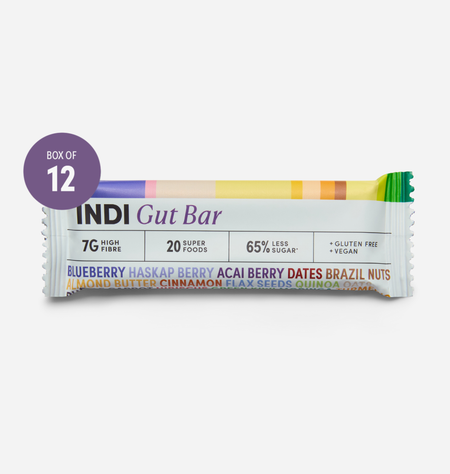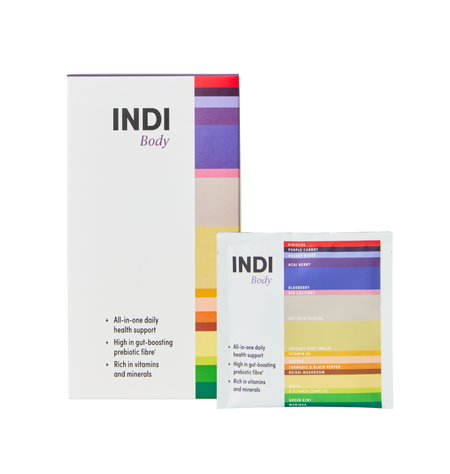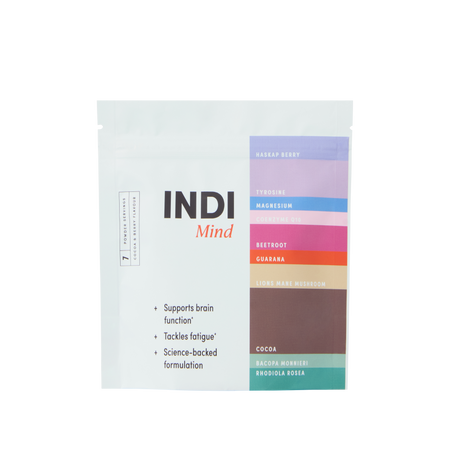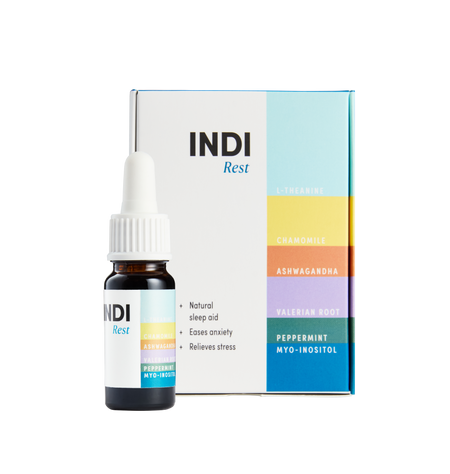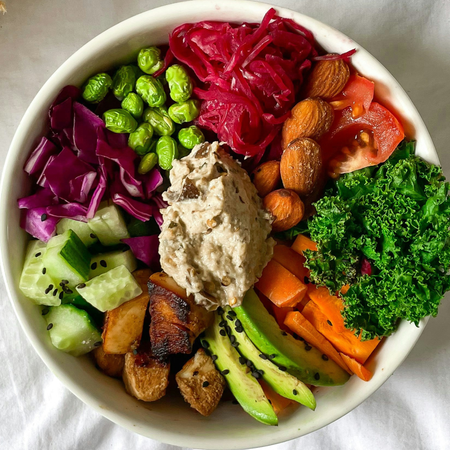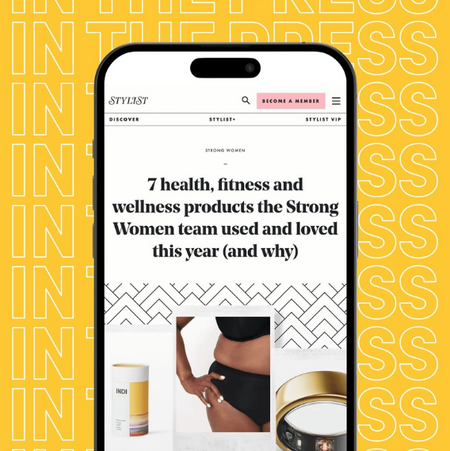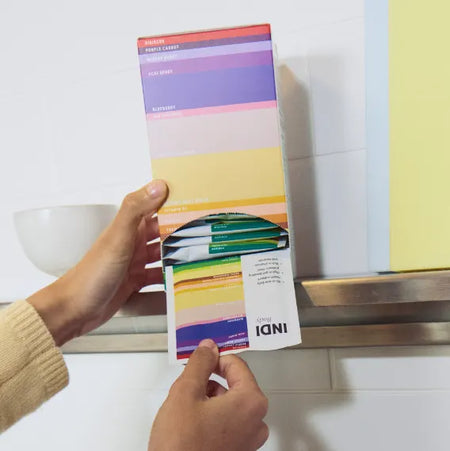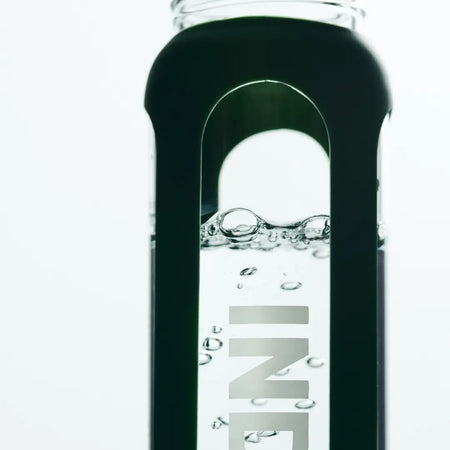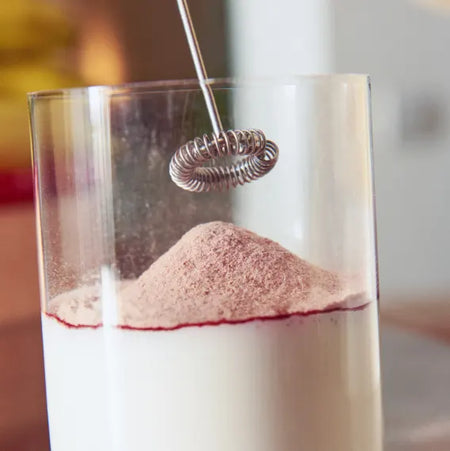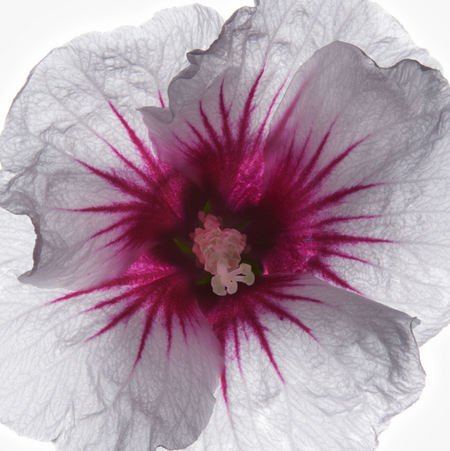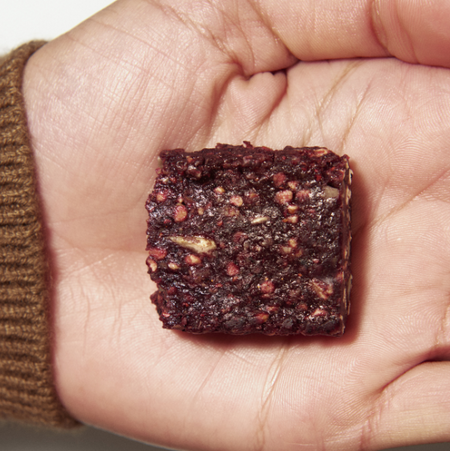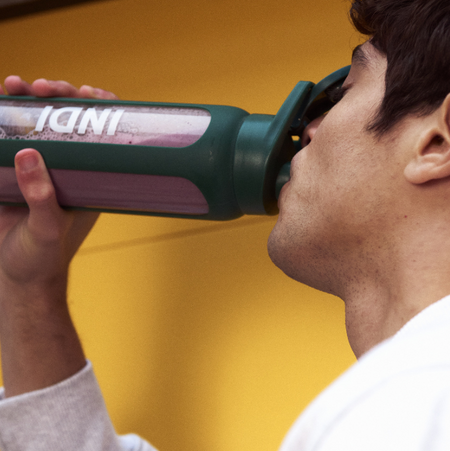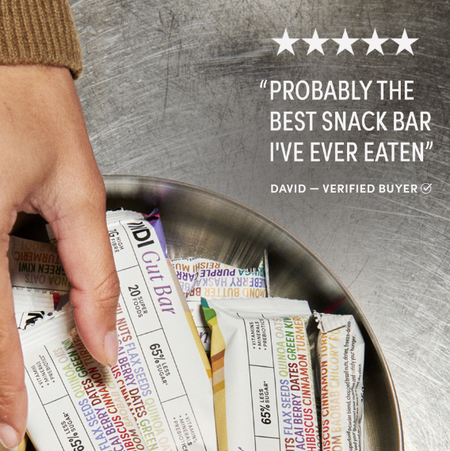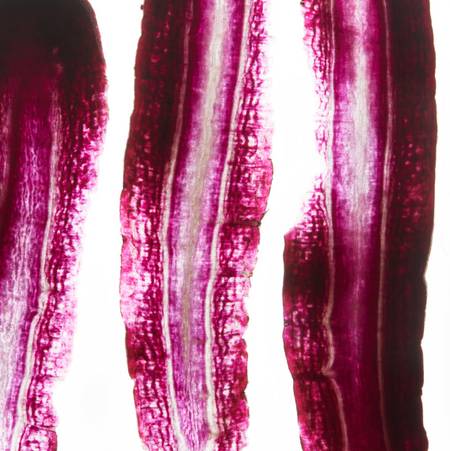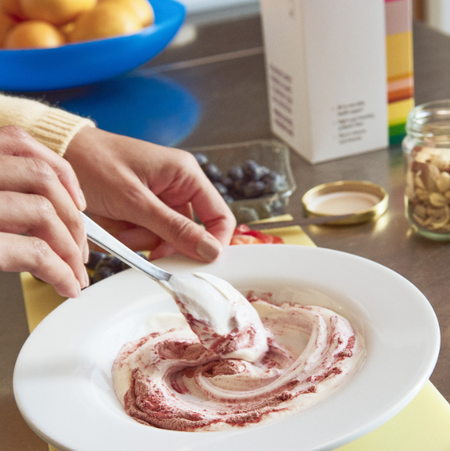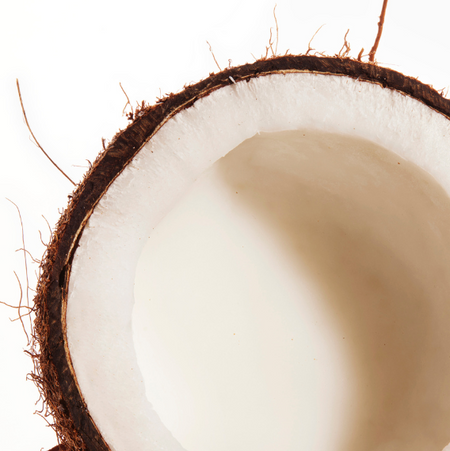The protein craze & why more isn't always better
Yes, protein is essential, but it’s not the only thing that matters. The risk? It distracts us from everything else our bodies needs for a healthy balanced diet. We’ve seen this kind of tunnel vision before with low-fat and low-carb…and now it’s high-protein.
DO YOU ACTUALLY NEED MORE PROTEIN?
Protein is a major building block of our cells and tissues, playing a role in almost everything happening in your body, not just muscle growth. It’s key for hormone production, hair, skin, nails, mood, blood sugar balance and even appetite regulation.
Most people in the UK are already getting enough protein (most people get around 1.2 g per kg of bodyweight per day). The UK Reference Nutrient Intake (RNI) (the amount needed to meet the needs of 97.5% of the population) is 0.8g of protein per kilogram of body weight per day. For ease, we like to round this up to 1g of protein per kg of body weight a day. So if you weigh 60kg, aim for around 60g of protein day.
However, if you’re undergoing intense training, have a reduced appetite, or are peri/post-menopausal, a higher intake of 1.2–1.6g/kg is beneficial. It’s also important to note that as we age, we require more protein to help prevent age-related muscle loss so those other 65 should also aim for 1.2g/kg. Also, for those taking weight-loss medications, getting enough protein is especially important to help preserve muscle while losing weight.
BUT, MORE PROTEIN ISN'T ALWAYS BETTER
And more protein from ultra-processed foods is definitely not better. Going overboard on protein won’t give you added benefits and it could sidetrack you from getting enough of the other nutrients your body needs (more on that shortly).
A 30-year study published in Nature Medicine involving over 105,000 people found that increasing total protein intake didn’t lead to a longer life or better health outcomes. What did? Eating more plants.
The simplest approach? Add in more protein sources which are also classified as plants: e.g. lentils, chickpeas, black or white beans, quinoa, brown rice, edamame, nuts and seeds. A diverse, balanced, plant-rich diet (emphasis on diverse) can provide you with all the essential amino acids (building blocks of protein you need to get from food) you need.
If you are in a specific subgroup that requires more protein then a whole food plant protein powder like INDI Recover can help if you cannot get enough from food alone.
THE PROBLEM WITH HIGH-PROTEIN SNACKS
The issue we have with the “protein craze” is that people are turning to ultra-processed drinks and snacks in a plea to improve their health. Many of these products are loaded with additives and sweeteners your body doesn’t need. The rise of high-protein products pushes fibre-rich options off the plate in favour of meat, fish, and eggs. We often get asked why we created a high-fibre bar instead of a protein bar, and this is why. Our Gut Bar fills an important gap…
WHAT MOST OF US ARE ACTUALLY MISSING FROM OUR DIETS
Fibre. Over 96% of people aren’t getting enough. And that’s a problem, because fibre is not only linked to better digestion, less bloating and improved gut health but also with improved mood, immunity, skin and a reduced risk of diabetes, heart disease, obesity and all-cause mortality (death from any cause).
While hitting the 30g a day fibre target is important, variety matters just as much. Different types of fibre feed different strains of gut bacteria, which produce different health-promoting compounds. Aim for a mix of fibre sources: think fruit, vegetables, legumes, whole grains, nuts, seeds, herbs and spices. For example, you could make a chopped salad with a range of vegetables or fruits or sprinkle mixed seeds on your breakfast, salad, toast or soup.
HOW INDI CAN HELP
When life gets busy, plant diversity can fall through the cracks. That’s where INDI steps in. INDI Body and Gut Bar delivers fibre from a wide range of the most nutrient-dense plants—like blueberry, hibiscus, baobab, acai, haskap berry, maca, moringa—many of which you won’t find in your local supermarket. This plant diversity supports a diverse gut microbiome, which is linked to better overall health.
And there’s nothing synthetic. Just real plants, gently powdered to keep their nutrients in their most natural, bioavailable form.
Think of Body as a whole food equivalent to a multivitamin and think of Gut Bar as a tasty snack that is actually good for your health.
Body
£55.00
Daily Gut Support
Our delicious berry flavour whole food and fibre-rich plant powder bolsters your daily diet to improve gut health, digestion, energy, mood and more. Loved by nutritionists, it's an everyday essential that virtually anyone will benefit from.
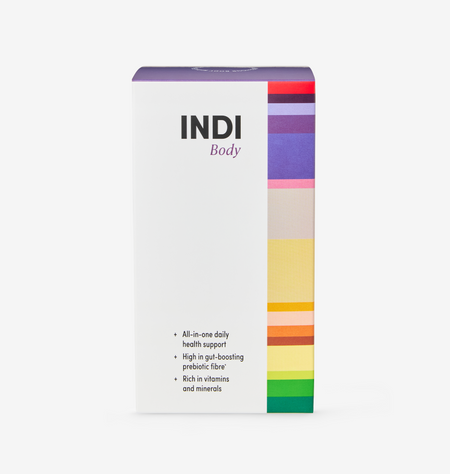
Gut Bars
from £20.00
A delicious, chewy, nutty, daily hit of gut-boosting greatness. 12x 35g per box.
